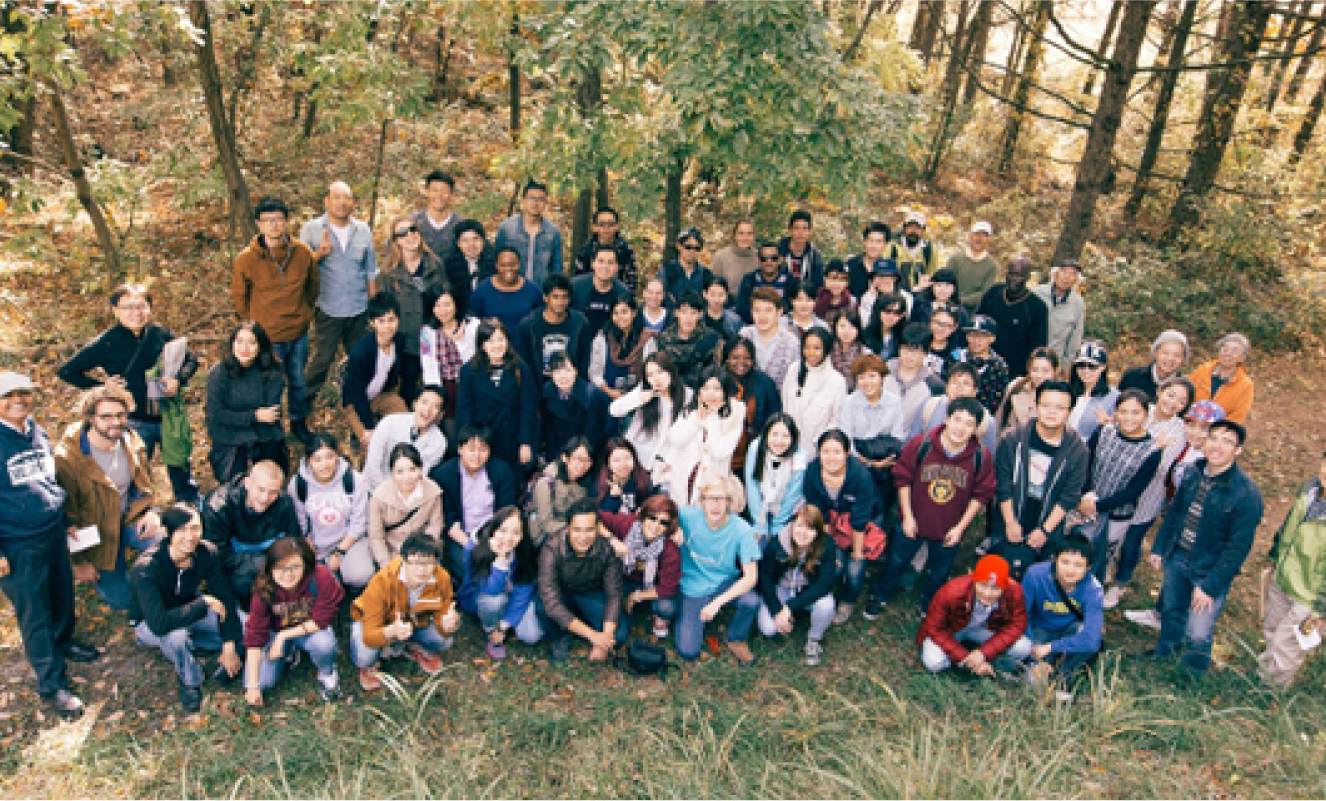Curriculum Chart
The curriculum comprises of compulsory and elective courses. In addition to lecture-based courses, students must enroll in research seminar and thesis seminars for credit where they will receive personal research supervision for their thesis from an academic supervisor of their choosing. Please be aware that due to faulty on sabbatical leave and other circumstances, some subjects may not always be available.
- BUSINESS STRATEGIES FOR SUSTAINABILITY
- ENVIRONMENTAL ECOLOGY
- ENVIRONMENTAL ECONOMICS
- INTRODUCTION TO ENVIRONMENTAL ACCOUNTING
- INDUSTRIAL ECOLOGY
- ENVIRONMENTAL ASSESSMENT
- ENVIRONMENTAL DATA SCIENCE
- MARINE ENVIRONMENTAL POLICY
- ENVIRONMENTAL HISTORY
- FOREST AND HUMAN INTERACTIONS
- ENERGY AND ENVIRONMENTAL TECHNOLOGY
- STRATEGIC ENVIRONMENTAL MANAGEMENT
- ENVIRONMENT AND SUSTAINABLE LIFESTYLES
- ECOLOGICAL RISK ASSESSMENT OF POLLUTANTS
- ECONOMIC VALUATION OF THE NATURAL ENVIRONMENT
- URBAN SUSTAINABILITY
- JAPANESE EXPERIENCES IN ENVIRONMENTAL MANAGEMENT
- ENGINEERING OF RECYCLING
- WASTE MANAGEMENT IN ASIA
- GLOBAL ENVIRONMENT OUTLOOK
- ENVIRONMENTAL PLANNING
- ENVIRONMENTAL POLICY: ANALYSIS AND PRACTICE
- BASIC OCEANOGRAPHY AND GLOBAL ENVIRONMENTAL SCIENCE
- ENVIRONMENT AND DEVELOPMENT IN DEVELOPING COUNTRIES
- DIVERSITY AND DISASTER RISK GOVERNANCE
- ENVIRONMENTAL REMOTE SENSING
Link to Academic Calendar
The academic year at Sophia University is divided into two semesters, the Spring Semester which commences in April and continues until the end of July and the Autumn Semester commencing the last week of September and continuing through to the end of January. For more detailed information about the academic calendar, lecture and exam period and Japanese national holidays, please refer to the following link:
Apart from in-class lectures, what is being offered to increase knowledge and build capacity ? At GENV, students are able to participate in fieldworks inside and outside of Japan as part of their research seminar and lectures. These fieldworks foster not only interaction among professors and other students in the program, but opportunities to meet environmental experts from different fields. Here are first-hand reports from the students sharing their perspectives and experiences.









